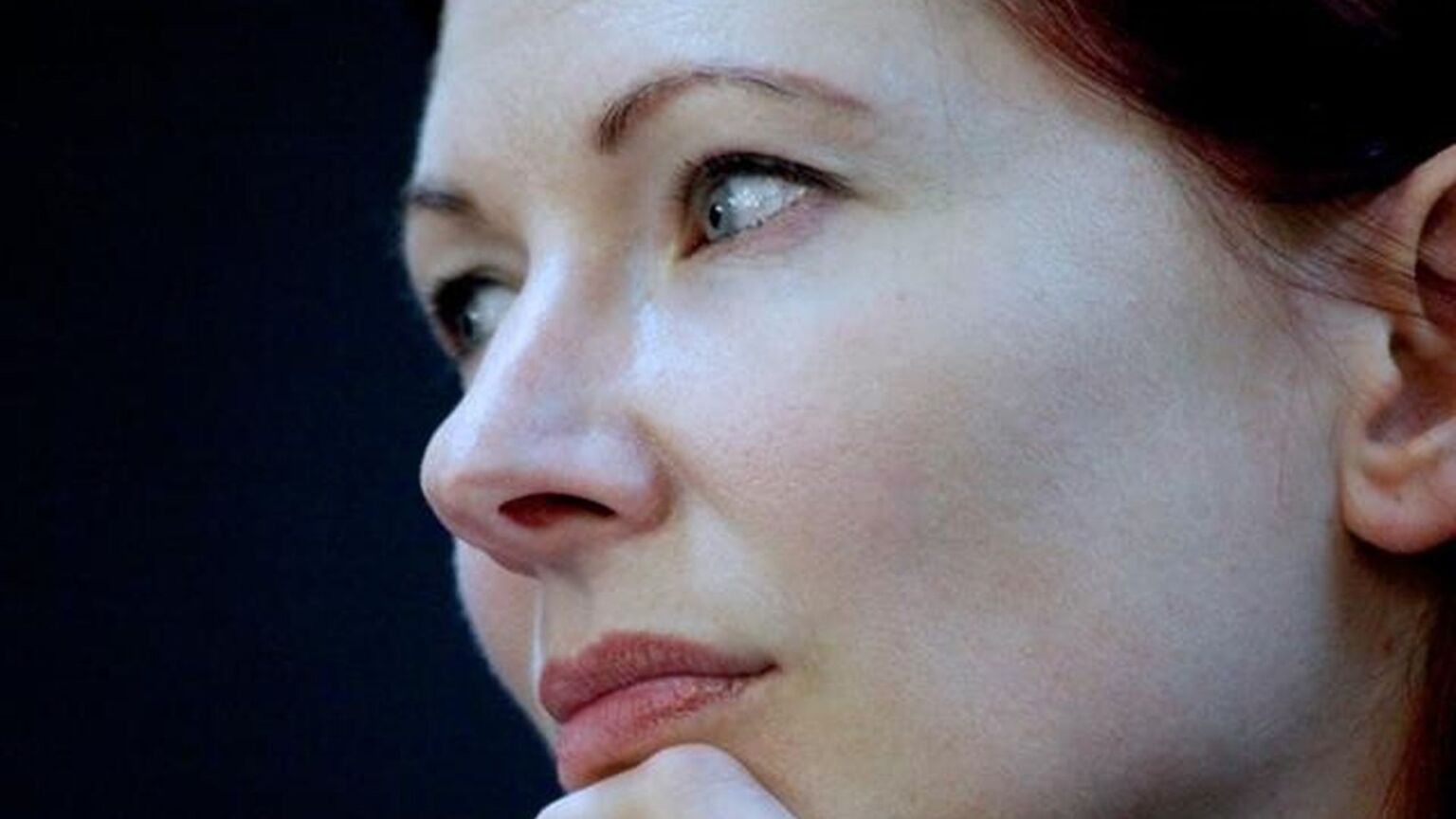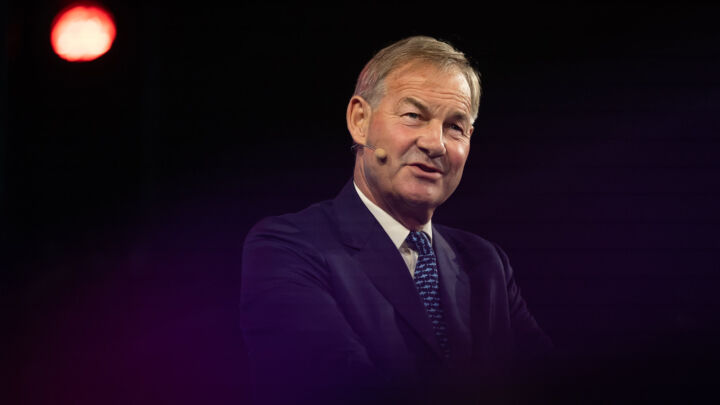‘The personal must not be the political’
Tiffany Jenkins on why the private sphere is so essential to liberty and democracy.

Want unlimited, ad-free access? Become a spiked supporter.
Can the private sphere survive the 21st century? The separation of private and public life was one of the key gains of the Enlightenment. Yet this distinction is continually being eroded – and not just by prying governments and data-hungry Big Tech. Invading our own privacy, airing our dirty laundry and sharing our deepest, darkest and most intimate secrets is today lauded as healthy by the cultural elites. A desire to keep things private, on the other hand, is treated as a de facto admission of guilt. The private sphere, we are told, is a site of horror and abuse that needs to be opened up to intervention.
In Strangers and Intimates: The Rise and Fall of Private Life, Tiffany Jenkins unpacks the challenges facing the private sphere today and traces its history from Ancient Greece to the social-media era. She recently joined Brendan O’Neill on his podcast, The Brendan O’Neill Show. What follows is an edited extract of their conversation. You can listen to the whole thing here.
Brendan O’Neill: People often demand privacy these days, but at the same time, we’re expected to live as publicly as possible, to show everything in the public realm, to put ourselves constantly online. Was it those kinds of trends that made you want to write Strangers and Intimates?
Tiffany Jenkins: I begin the book with Harry and Meghan. They’re constantly showing their private lives in public, but at the same time calling for restrictions in the way the press can report on them. This is a controlling attitude, and the type of contradiction that I wanted to examine. The willingness to showcase the ‘authentic’ private self on Netflix while simultaneously demanding greater privacy. I also wanted to explore the calls for privacy laws to protect us from tech, which blatantly contradicts another popular idea – namely, that the private realm is something toxic, a place of bullying and abuse.
O’Neill: There is often a presumption that technology is the cause of these privacy issues. Do you agree with that?
Jenkins: We tend to blame new technology for lots of social problems today. The rise in mental-health conditions, for example, or the difficulties people experience with attention span. Even the impulse to constantly broadcast our private lives online is blamed on technology. But I don’t believe it’s that deterministic.
If you go back to the 20th century, when technology was worlds away from what it is now, it was always breaching the private realm. There was Candid Camera in America in the 1950s. Reality TV began in the 1970s, before Mark Zuckerberg was even a twinkle in his mother’s eye. This reveals a willingness to put our intimate lives out in public long before modern technology emerged.
O’Neill: In the book, you argue that private life rises in tandem with public life. What do you mean by that?
Jenkins: The borders of the state are restricted by the creation of a private sphere. This space for freedom really emerged in the 18th century with the growth of the press. The lapse of the licensing law meant that newspapers were popping up everywhere, and subjecting the government to a level of scrutiny it hadn’t experienced before. There was the emergence of modern political parties. There were huge debates happening in public, which effectively established a space for criticism.
In this period, people started talking about ‘public opinion’ for the first time. They began to think about how to hold the state to account, and how to behave in public towards strangers. That’s how politeness emerged as such an important value. This was, after all, in the wake of the religious wars, so you had to be careful who you were talking to. It was when the handshake developed. It was a time of assembly rooms, balls and libraries – an utter flourishing of public life, both in physical form and as an idea.
Simultaneously, something new was happening in the private realm. The household was separated from work, and it became a space of intimacy and seclusion. What initially began as overlapping circles became much more defined and explicit. It was a great age of separations.
O’Neill:: In this sense, the private realm and the public realm are dependent on each other, aren’t they?
Jenkins: Strangely, at the moment, we’re witnessing intimacy invade the public realm. It’s very difficult to conduct political discussions because everything has become so personalised. The idea that there are different rules of engagement between the public and the private has been lost. There is a definite benefit to keeping those two worlds separate. It’s like a dance – you need both partners for it to work.
O’Neill:: What do you make of the phrase ‘the personal is political’?
Jenkins: During the 1950s and 1960s, even into the early 1970s, much of the ‘new left’ became disenchanted with the public realm. Specifically, they were disenchanted with the failures of various social movements. So they turned to this idea of the ‘authentic self’. If you read some of the output of Students for a Democratic Society, they’re speaking as though ‘authenticity’ and ‘realising the self’ could be foundations of a new political movement.
Feminists also became disenchanted with changes in public life, whether it was slow progress on equal pay or childcare. They started to consider the private realm to be the site of the patriarchy. This way of thinking opened up the private realm to intervention – and it also gave up on the public realm as a place to achieve freedom and equality.
O’Neill: How do you explain the modern contradiction where on the one hand, privacy is valued, but at the same time, there is a wariness of the private realm itself?
Jenkins: This is quite an abstract thing, which I chart through a 1973 Royal Commission report called the Younger report. In it, we first got the sense that the public ‘needs’ privacy laws. This was new for Britain because, unlike America, we’re not quite as legalistic. There was always an assumption that Brits had a stiff upper lip, and nobody intruded on other people’s business.
In the report, it appears something bifurcates in the definition of privacy. We see the beginnings of the discussion we are having today, which centres around surveillance and wiretapping. Now, there are two ideas of privacy – the right to be left alone, and the right to control information about yourself in public. What I inferred from this report is that privacy was beginning to get a bad rap – it was seen as dangerous, and a place that needed to be opened up.
O’Neill: What is the impulse behind people seeking validation from exposure to strangers, rather than getting it from their private lives?
Jenkins: An example of this I was really struck by was the case of Joe Gow and Carmen Wilson – married academics from the US who filmed themselves having sex and put it online. When I spoke to them about it, they told me that they loved each other, and didn’t believe they were doing anything wrong. I thought it very odd that they seemed to get no validation from simply having sex in private. Christopher Lasch talks about a ‘minimal sense of self’ – the idea that the self is so weak and needy it requires constant affirmation that it exists.
I believe the explanation for this is that we’ve lost our public selves, our communities, and the places that exist beyond our own individual interests. As a result, we retreat to the private. And when public recognition and participation have been largely eroded, the private self is what seeks affirmation instead.
Brendan O’Neill was talking to Tiffany Jenkins. Listen to the full conversation here:
You’ve hit your monthly free article limit.
Support spiked and get unlimited access.
Support spiked and get unlimited access
spiked is funded by readers like you. Only 0.1% of regular readers currently support us. If just 1% did, we could grow our team and step up the fight for free speech and democracy.
Become a spiked supporter and enjoy unlimited, ad-free access, bonus content and exclusive events – while helping to keep independent journalism alive.
Monthly support makes the biggest difference. Thank you.










Comments
Want to join the conversation?
Only spiked supporters and patrons, who donate regularly to us, can comment on our articles.